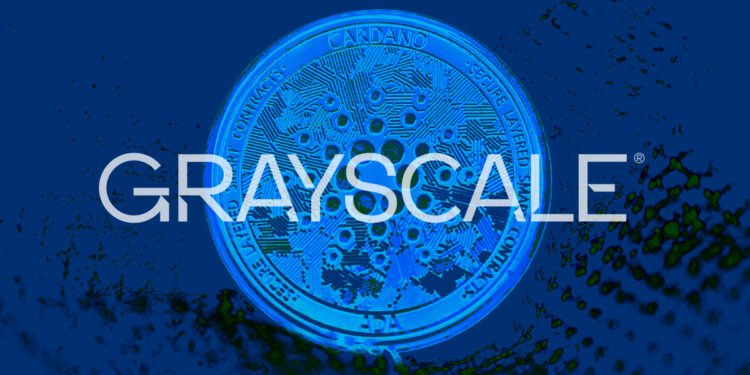Grayscale Initiates SEC Approval Process for Pioneering Cardano ETF, Generating Market Enthusiasm
Introduction
Grayscale Investments has formally requested approval from the U.S. Securities and Exchange Commission (SEC) to introduce a Cardano exchange-traded fund (ETF) on the New York Stock Exchange. The application, disclosed in a filing dated February 10, signifies the debut of the initial U.S.-based ETF directly tied to ADA, the cryptocurrency exclusive to the Cardano network, providing investors with a regulated channel to invest in the digital asset.
Expert Perspective
Industry experts have taken note of this development, recognizing its significance for Grayscale and the wider cryptocurrency sector. A renowned cryptocurrency analyst well-versed in ETF trends remarked, “The potential introduction of a Cardano ETF not only confirms ADA’s standing in the crypto world but also indicates increasing institutional backing for blockchain technology.”
Market Overview
The news of Grayscale’s ETF application has invigorated the market, leading to a surge of over 15% in ADA’s value, reaching around $0.80 according to the most recent data from CryptoSlate. This uptick follows a month-long decline that pushed ADA below the $1 threshold, though it currently remains significantly lower at 74% below its peak exceeding $3. This application aligns with Grayscale’s strategy to diversify its crypto ETF portfolio, currently covering more than 20 products encompassing major cryptocurrencies like Bitcoin and Ethereum.
Impact Assessment
Should the Cardano ETF garner approval, it could profoundly impact competition in the cryptocurrency investment realm, simplifying accessibility to ADA for investors without the complexities linked to directly owning cryptocurrencies. However, the application faces substantial regulatory challenges. The SEC previously categorized ADA as a security in legal battles involving cryptocurrency exchange Coinbase, a classification disputed by the Cardano community. Approval for the ETF might encounter obstacles if the SEC maintains this stance, particularly given the hurdles encountered by other cryptocurrencies like XRP in their ETF endeavors.
Conclusion
Grayscale’s ETF proposal for Cardano stands out as a noteworthy advancement highlighting the rising institutional interest in digital assets and blockchain architecture. While uncertainties loom over the approval process, the potential emergence of a Cardano ETF could revolutionize investor interactions with cryptocurrencies, presenting a pivotal product emphasizing scalability, security, and decentralization. As the industry anticipates the SEC’s verdict, this moment signifies a crucial phase in the continual evolution of cryptocurrency investment opportunities.








